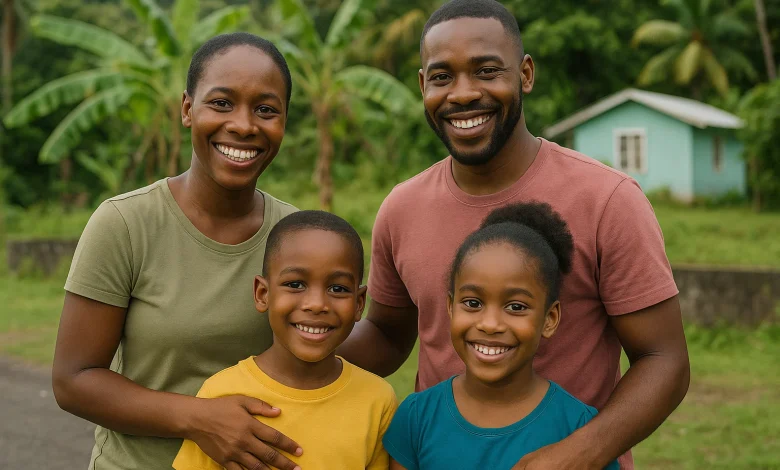Status of Children Act of Dominica

The Status of Children Act of Dominica is a key piece of family law reform, passed in 2023, that guarantees equal rights to all children regardless of their parents’ marital status. It forms part of a legislative package aimed at modernising the country’s framework for child protection, guardianship, and family law, addressing gaps that previously left many children disadvantaged in terms of inheritance, custody, and recognition under the law.
Historical Context and Motivation for Reform
Before the adoption of the 2023 legislation, Dominica’s family law still carried distinctions between children born within marriage and those born outside of it. The term “illegitimate” appeared in older statutes, creating legal disadvantages in matters of property, guardianship, and parental responsibility. International and regional organisations, including the UN Committee on the Rights of the Child, had urged Dominica for years to update its laws to align with modern principles of equality and human rights.
The devastating social impacts of Hurricane Maria in 2017, which exposed vulnerabilities in family structures and child welfare systems, gave renewed urgency to these reforms. Policymakers recognised that building resilience also required strengthening legal protections for children.
In 2023, Parliament enacted a suite of family-related laws, including the Status of Children Act, the Maintenance of Children Act, and the Children and Young Persons (Care and Adoption) Act, each addressing different gaps in child and family protection.
Key Provisions of the Act
The Status of Children Act introduced several groundbreaking changes that redefined children’s rights in Dominica:
- Equal legal status for all children: The Act abolished the distinction between “legitimate” and “illegitimate” children, ensuring that all children enjoy the same rights under the law, including inheritance rights and equal standing in court.
- Best interests principle: Courts and administrative bodies are now required to make decisions affecting children based on the principle of the “best interests of the child.” This standard aligns with international treaties and has become central to custody, guardianship, and parental-responsibility cases.
- Guardianship and parental responsibility: The Act clarifies parental duties and responsibilities, giving both mothers and fathers equal recognition regardless of marital status. It allows children born outside of marriage to have legally recognised paternal ties.
- Inheritance and property rights: By removing discriminatory distinctions, the law ensures that children can inherit from both parents on equal terms, preventing the exclusion of children born outside marriage from property or succession rights.
- Recognition of international obligations: The Act explicitly incorporates aspects of the UN Convention on the Rights of the Child, which Dominica ratified in 1991, strengthening the state’s accountability to global human-rights standards.
Institutional Roles and Implementation
The reforms are administered through multiple agencies, including the Social Welfare Division, the Child Protection Unit, and the courts. According to the Social Welfare Division, the package of 2023 laws has “enhanced the work of the department,” giving social workers clearer legal backing when intervening in child protection cases.
The Act also works in tandem with the Bureau of Gender Affairs and NGOs that advocate for children’s welfare, offering an updated legal framework for addressing disputes, custody battles, and child neglect cases.
Challenges and Gaps in Application
Despite the progress, some challenges remain:
- Public awareness: Many families remain unaware of the changes, particularly in rural areas where traditional attitudes about “legitimacy” persist. Awareness campaigns are required to ensure that parents and children know their rights.
- Corporal punishment: The Act does not address corporal punishment, which is still permitted under some laws in homes and schools. International watchdogs, including End Corporal Punishment of Children, continue to call for broader reforms.
- Data limitations: There is no centralised database that tracks outcomes related to custody, guardianship, or inheritance disputes under the new framework, making it difficult to measure the law’s full impact.
- Judicial training: Implementation requires that judges, magistrates, and lawyers apply the Act consistently, but ongoing training and resources are needed to embed the “best interests” principle effectively.
Broader Significance
The Status of Children Act is more than a domestic reform; it positions Dominica within a broader regional and international shift toward child equality. Similar reforms have been enacted in Barbados, Jamaica, and St. Lucia, often after pressure from international organisations. For Dominica, this Act represents both compliance with international standards and a cultural shift toward recognising children as equal rights-holders in society.
Its passage in 2023 also coincided with Dominica’s Universal Periodic Review at the UN Human Rights Council, where progress on family law was noted. The law is therefore both a domestic milestone and a signal of Dominica’s commitment to international human-rights obligations.
The Status of Children Act of Dominica modernises the country’s family law framework, ensuring that all children are recognised equally under the law, regardless of birth status. While implementation challenges persist, particularly in terms of awareness, data collection, and complementary reforms, the legislation is a landmark in advancing children’s rights and provides a stronger foundation for protecting children and building a fairer, more resilient society.




